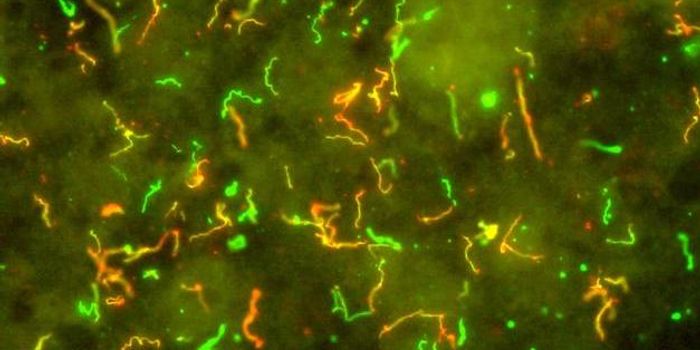Advancing Drug Therapies for an Increasing Case of a Parasitic infection Among Displaced Syrians
Cases of Cutaneous leishmaniasis (CL), a parasitic disease, has increased dramatically in Syria and neighboring countries as a result of the conflict-related displacement of Syrians.

Drawing depicting family feeling war-torn Syria.
Credit: Jan Birck via Public International Radio (PRI.org)
Now, a recent study published in PLOS Neglected Tropical Diseases by Rana El Hajj at the American University of Beirut, Lebanon describes the development of a novel immunomodulatory analog that will seek to advance the treatment of CL.
Cutaneous leishmaniasis (CL) is a parasitic infection with occurrences throughout the Americas from Texas to Argentina, and in the Old World, particularly the Middle East and North Africa. The infection is spread via by a female sandfly and is diagnosed annually in travelers, immigrants, and military personnel. Health care providers in the United States must alert to the diagnosis of leishmaniasis in travelers flying from endemic areas.
Presently, current therapeutics for CL can induce partial or complete cure. But these therapies come with multiple limitations, such as repetitive painful administrations, lack of availability, increased cost, and the emergence of resistant strains. Most importantly, the efficacy of these therapies are effected by the patient's age and immune system.
Learn more about Cutaneous leishmaniasis (CL):
In the study, the pre-clinical efficacy of the immunomodulatory drug--Imiquimod and one of its analogs, EAPB0503--on two strains (Leishmania major and Leishmania tropica) were investigated. These strains are known to cause CL in regions of the Middle East. These drugs were also tested on freshly isolated parasites from biopsies that proved their leishmanicidal potency.
The authors note, "Our findings establish Imiquimod as a strong candidate for treating L. tropica and show the higher potency of its analog EAPB0503 against CL."
The study is a promising solution to a current global health crisis and will effectively combat the increasing cases of CL.
Source: American Family Physician, PLOS Neglected Tropical Diseases

-
MAY 07, 2024Is It Anti-RNP or Anti-Sm/RNP?
- See More
-
APR 30, 2024Immuno-Oncology Virtual Event Series 2024
-
MAY 07, 20243rd International Biosecurity Virtual Symposium
-
MAY 23, 2024For the Love of Digital PCR 2024
- See More

















































